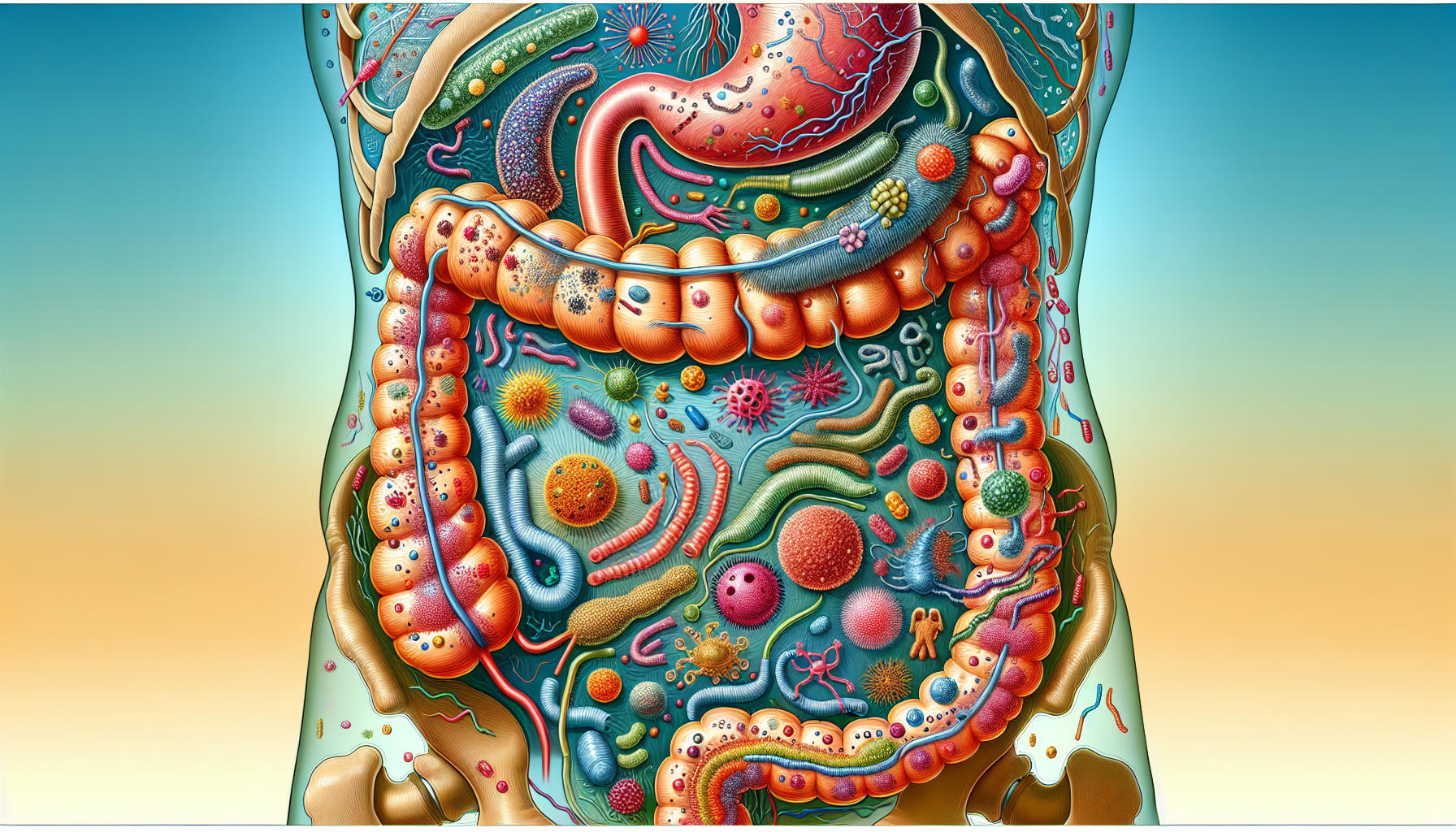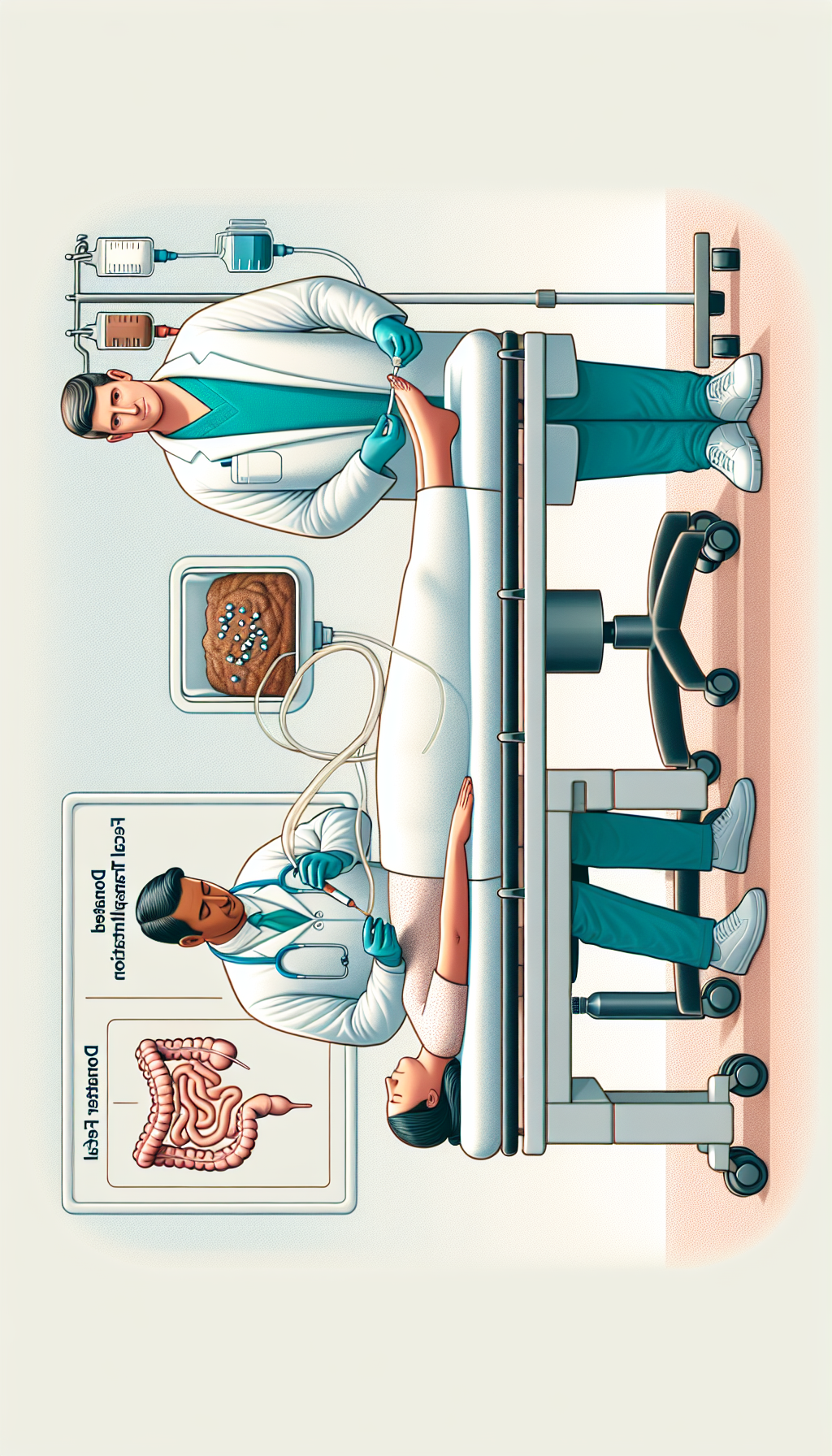The gut microbiota, a complex and dynamic community of microorganisms residing in our gastrointestinal tract, has garnered significant attention in the field of digestive health. This microscopic world, comprising bacteria, fungi, viruses, and other microbes, plays a pivotal role in maintaining our overall health and well-being. In this comprehensive exploration, we delve into the significance of gut microbiota in preventing and managing digestive diseases, offering insights into how a healthy gut ecosystem can be a powerful ally against gastrointestinal disorders.
The Gut Microbiota: A Cornerstone of Digestive Health
Our digestive system is home to trillions of microbes that collectively form the gut microbiota. These organisms are not mere passengers; they engage in a symbiotic relationship with our body, influencing digestion, nutrient absorption, and immune function. A diverse and balanced gut microbiota is essential for digestive health, as it helps break down complex carbohydrates, synthesizes essential vitamins, and wards off pathogenic invaders.
A disruption in the equilibrium of gut microbiota, known as dysbiosis, has been linked to various digestive diseases, including inflammatory bowel disease (IBD), irritable bowel syndrome (IBS), and colorectal cancer. Dysbiosis can result from numerous factors, such as antibiotics misuse, poor diet, and stress, underscoring the importance of lifestyle choices in maintaining a healthy gut.
The Preventive Power of Microbiota
The gut microbiota’s role in disease prevention is multifaceted. By outcompeting harmful pathogens for resources and space, beneficial microbes help prevent infections. They also produce short-chain fatty acids (SCFAs) through the fermentation of dietary fibers, which have anti-inflammatory properties that protect the gut lining and reduce the risk of chronic diseases.
Emerging research suggests that a diverse gut microbiota may reduce the likelihood of developing certain digestive conditions. For instance, a rich variety of gut bacteria has been associated with a lower incidence of IBD and may play a protective role against gastrointestinal cancers.
Managing Digestive Diseases with Microbiota Modulation
Modulating the gut microbiota presents a novel approach to managing digestive diseases. Probiotics, live microorganisms that confer health benefits, are widely used to restore gut microbiota balance. These beneficial bacteria can alleviate symptoms of IBS, such as bloating and irregular bowel movements, and are being investigated for their potential in IBD management.
Prebiotics, non-digestible food components that stimulate the growth of beneficial gut bacteria, are another tool for microbiota modulation. By increasing the abundance of health-promoting microbes, prebiotics can enhance gut barrier function and reduce inflammation.
Diet plays a crucial role in shaping the gut microbiota. A diet rich in fruits, vegetables, and whole grains supports a diverse and resilient microbial community. Conversely, a diet high in processed foods and sugar can lead to dysbiosis and increased disease risk. For a deeper understanding of diet’s impact on gut health, refer to the article on The Impact of Dietary Choices on Gut Microbiome Diversity.
External Resources on Gut Microbiota and Digestive Health
To further appreciate the complexity of gut microbiota and its implications for health, several high-quality, niche resources provide valuable information. The American Gut Project, a citizen science initiative, offers insights into the human microbiome and its association with various health conditions. The International Scientific Association for Probiotics and Prebiotics (ISAPP) provides evidence-based information on the benefits of probiotics and prebiotics for gut health.
For those interested in the therapeutic potential of microbiota modulation, the Human Microbiome Project presents a wealth of data on the human microbiome’s role in health and disease. Additionally, the Gut Microbiota for Health platform disseminates research findings and expert opinions on the gut microbiota’s impact on well-being.
Integrating Microbiota Knowledge into Digestive Disease Treatment
The integration of gut microbiota knowledge into clinical practice is transforming the treatment of digestive diseases. Fecal microbiota transplantation (FMT), the transfer of stool from a healthy donor to a patient with dysbiosis, has shown promise in treating recurrent Clostridioides difficile infection and is being explored for other conditions, such as IBD.
Personalized nutrition, based on individual microbiota profiles, is another exciting development. By tailoring dietary recommendations to promote a healthy microbiota, healthcare providers can offer more effective interventions for digestive diseases. Articles like Nutritional Strategies for Managing Gastritis delve into the specifics of how diet can be customized to improve gut health.
The Interconnectedness of Gut Health and Overall Wellness
The influence of gut microbiota extends beyond the digestive system, impacting cardiovascular health, brain function, and even mental health. The intricate connections between the gut and other body systems highlight the importance of a holistic approach to health, where gut microbiota management is a component of comprehensive care.
In conclusion, the gut microbiota is a critical factor in the prevention and management of digestive diseases. By understanding and harnessing the power of these microscopic allies, we can pave the way for innovative treatments and a future where digestive health is not taken for granted but actively nurtured through informed choices and scientific advancements. As research continues to unravel the mysteries of the gut microbiota, one thing is clear: a healthy gut is foundational to a healthy life.



